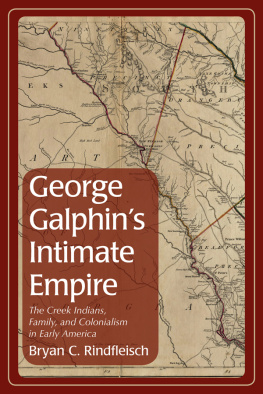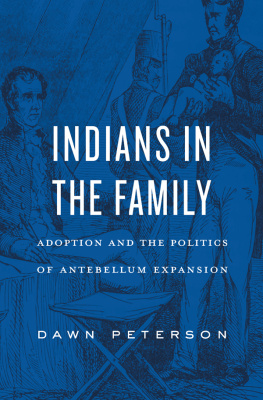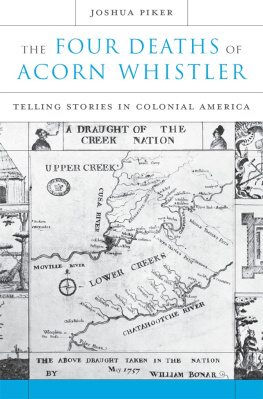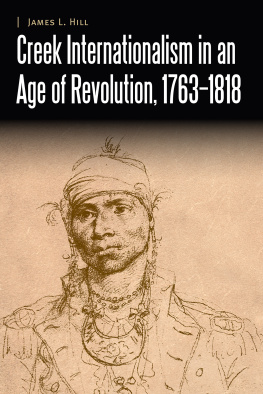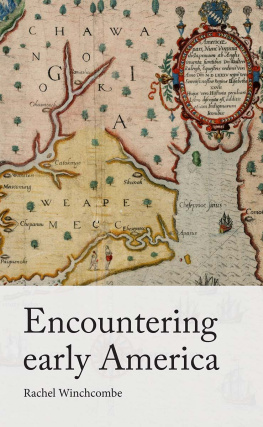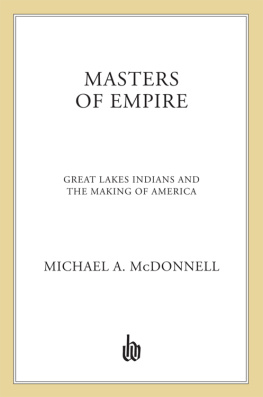Bryan C. Rindfleisch - George Galphins Intimate Empire: The Creek Indians, Family, and Colonialism in Early America
Here you can read online Bryan C. Rindfleisch - George Galphins Intimate Empire: The Creek Indians, Family, and Colonialism in Early America full text of the book (entire story) in english for free. Download pdf and epub, get meaning, cover and reviews about this ebook. year: 2019, publisher: University Alabama Press, genre: Politics. Description of the work, (preface) as well as reviews are available. Best literature library LitArk.com created for fans of good reading and offers a wide selection of genres:
Romance novel
Science fiction
Adventure
Detective
Science
History
Home and family
Prose
Art
Politics
Computer
Non-fiction
Religion
Business
Children
Humor
Choose a favorite category and find really read worthwhile books. Enjoy immersion in the world of imagination, feel the emotions of the characters or learn something new for yourself, make an fascinating discovery.
- Book:George Galphins Intimate Empire: The Creek Indians, Family, and Colonialism in Early America
- Author:
- Publisher:University Alabama Press
- Genre:
- Year:2019
- Rating:4 / 5
- Favourites:Add to favourites
- Your mark:
George Galphins Intimate Empire: The Creek Indians, Family, and Colonialism in Early America: summary, description and annotation
We offer to read an annotation, description, summary or preface (depends on what the author of the book "George Galphins Intimate Empire: The Creek Indians, Family, and Colonialism in Early America" wrote himself). If you haven't found the necessary information about the book — write in the comments, we will try to find it.
A native of Ireland, George Galphin arrived in South Carolina in 1737 and quickly emerged as one of the most proficient deerskin traders in the South. This was due in large part to his marriage to Metawney, a Creek Indian woman from the town of Coweta, who incorporated Galphin into her family and clan, allowing him to establish one of the most profitable merchant companies in North America. As part of his trade operations, Galphin cemented connections with Indigenous and European peoples across the South, while simultaneously securing links to merchants and traders in the British Empire, continental Europe, and beyond.
In George Galphins Intimate Empire: The Creek Indians, Family, and Colonialism in Early America, Bryan C. Rindfleisch presents a complex narrative about eighteenth-century cross-cultural relationships. Reconstructing the multilayered bonds forged by Galphin and challenging scholarly understandings of life in the Native South, the American South more broadly, and the Atlantic World, Rindfleisch looks simultaneously at familial, cultural, political, geographical, and commercial tiesexamining how eighteenth-century people organized their world, both mentally and physically. He demonstrates how Galphins importance emerged through the people with whom he bonded. At their most intimate, Galphins multilayered relationships revolved around the Creek, Anglo-French, and African children who comprised his North American family, as well as family and friends on the other side of the Atlantic.
Through extensive research in primary sources, Rindfleisch reconstructs an expansive imperial world that stretches across the American South and reaches into London and includes Indians, Europeans, and Africans who were intimately interconnected and mutually dependent. As a whole, George Galphins Intimate Empire provides critical insights into the intensely personal dimensions and cross-cultural contours of the eighteenth-century South and how empire-building and colonialism were, by their very nature, intimate and familial affairs.
Bryan C. Rindfleisch: author's other books
Who wrote George Galphins Intimate Empire: The Creek Indians, Family, and Colonialism in Early America? Find out the surname, the name of the author of the book and a list of all author's works by series.

